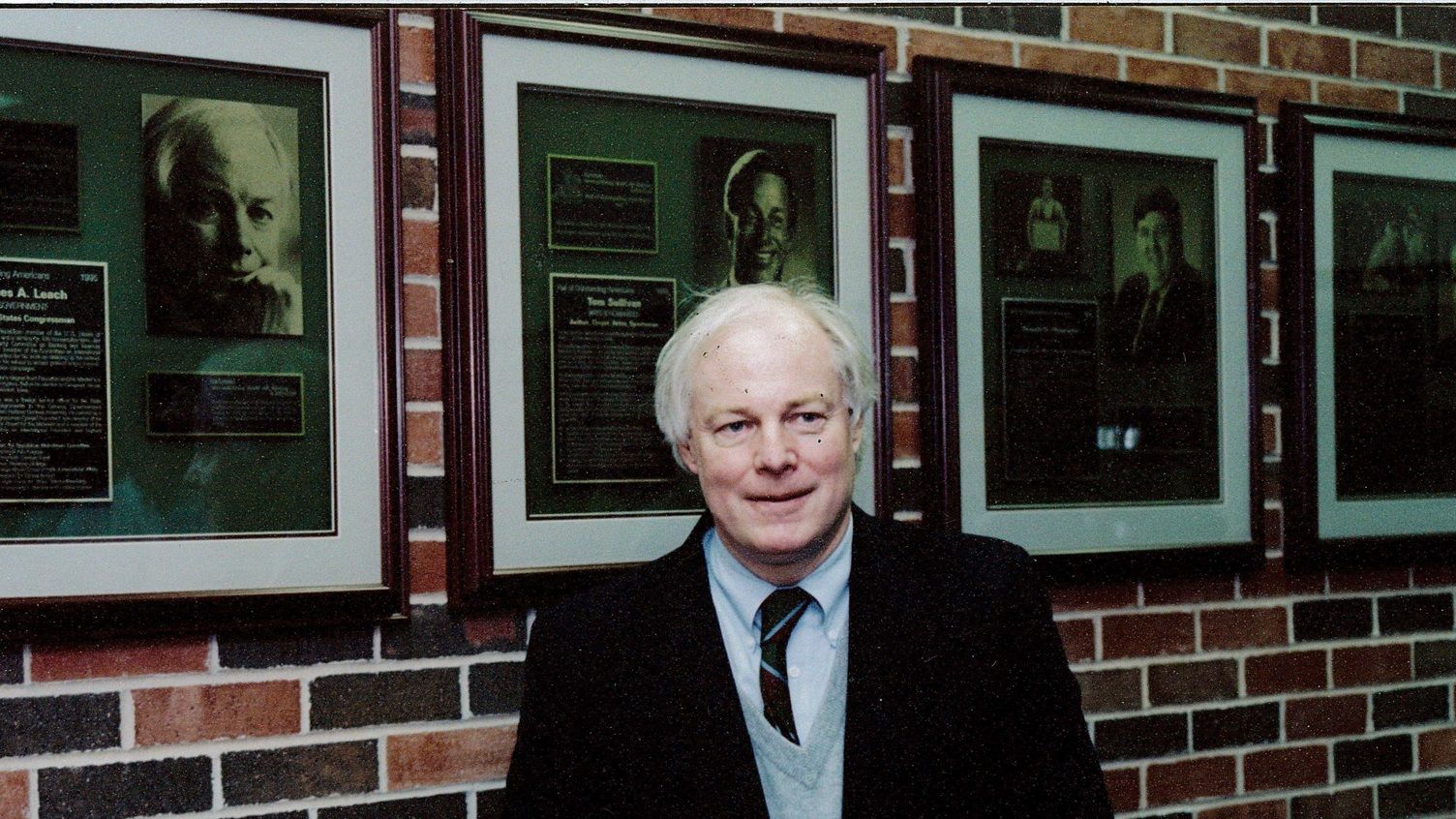
Outstanding American Honoree James Leach Passes Away
The National Wrestling Hall of Fame was saddened to learn that James Leach, who was honored as an Outstanding American by the Hall of Fame in 1995 and inducted into the National Wrestling Hall of Fame Dan Gable Museum’s Glen Brand Wrestling Hall of Fame of Iowa in 2003, passed away on Wednesday, at the age of 82.
From the high school wrestling mats of Iowa to the halls of the United States Congress, Leach was always a leader and a winner. He was a member of the Davenport High School wrestling and football teams in and won the 138-pound state wrestling title as a senior in 1960.
"I’ve always thought that the most equalitarian place in the world is the wrestling mat," Leach said in a 2009 interview with the National Endowment for the Humanities. "You have two people operating with the same goal in mind and abiding by the same rules. Wrestlers may differ in height and body type, but it’s hard to say who has the natural advantage."
"On behalf of the National Wrestling Hall of Fame Board of Governors and our staff, I extend our heartfelt condolences to Jim Leach's family and friends," said Lee Roy Smith, Executive Director of the Hall of Fame. "Jim was a true champion of wrestling, crediting the sport with instilling in him the work ethic and values that fueled an extraordinary career in education and government service. His remarkable achievements reflect the deep inspiration and passion he held for life and for his country."
Leach was elected as a Republican member of the United States House of Representatives in 1976, and served 30 years as a Republican member of the United States House of Representatives from 1977 to 2007. In Congress, Leach chaired the House Committee on Banking and Financial Services from 1995 to 2001 and gained attention for his work on cleaning up the savings and loan scandal and for his refusal to accept political action committee donations to run his election campaigns. He was also a senior member of the House Committee on International Relations, serving as Chair of the committee's Subcommittee on Asian and Pacific Affairs from 2001 to 2006. He served as ninth Chair of the National Endowment for the Humanities from 2009 to 2013.
Leach earned his bachelor's degree from Princeton University and his master's degree in Soviet politics from Johns Hopkins University. Before his election to Congress, he ran a family business in Bettendorf, Iowa.
From 1970 to 1973 he was a foreign service officer for the State Department, with assignments to the Geneva Disarmament Conference and the United Nations General Assembly. He served as a special assistant to Congressman Donald Rumsfeld, another Outstanding American in the National Wrestling Hall of Fame, was director of the Federal Home Loan Bank Board for the Midwest and a member of the U. S. Advisory Committee on International Education and Cultural Affairs.
Leach was a member of the Republican Mainstream Committee, of which he was the founder and chairman, the Congressional Arts Caucus, the Twentieth Century Fund, the Iowa Wesleyan College board of trustees, the Woodrow Wilson School of Public and International Affairs, Parliamentarians for Global Action, and the Speaker's Task Force on Video Teleconferencing. He possessed a strong background and widespread interests in education, economics and political science.
After leaving Congress, he taught at Princeton and served on the board of several public companies and four non-profit organizations, including the Century Foundation, the Kettering Foundation and the Carnegie Endowment for International Peace. He was a member of the Council on Foreign Relations and formerly served as a trustee of Princeton University. He was the John L. Weinberg Visiting Professor of Public and International Affairs at the Woodrow Wilson School of Princeton University, and also served as the interim director of the Institute of Politics at Harvard Kennedy School at Harvard University from 2007 to 2008, when Bill Purcell was appointed permanent director.